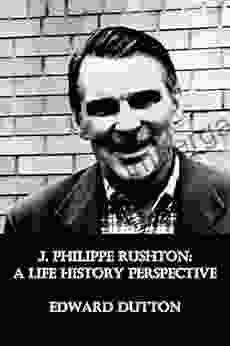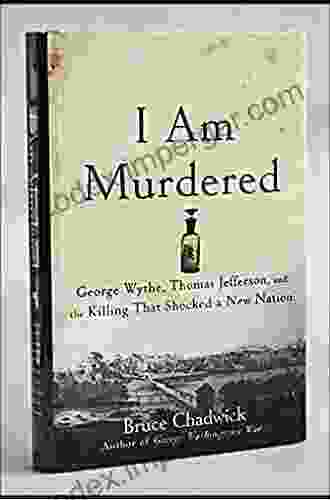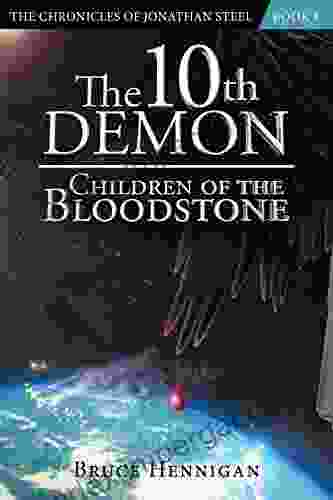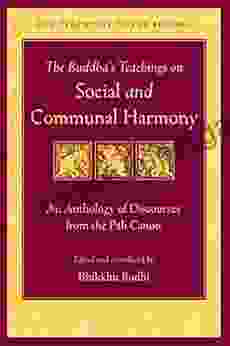Unlock the Secrets of Human Evolution with Philippe Rushton's Life History Perspective

Philippe Rushton's groundbreaking work, Life History Perspective: A New Theory of Race and Intelligence, offers a revolutionary understanding of human evolution and its implications for understanding racial and ethnic differences. This meticulously researched and thought-provoking book challenges conventional wisdom and presents a comprehensive framework for interpreting the complexities of human behavior and cognition.
At the heart of Rushton's theory is the concept of life history. Life history refers to the characteristic patterns of growth, development, reproduction, and aging that distinguish different species and populations. Rushton argues that these life history patterns have a profound influence on human behavior, physiology, and intelligence.
According to Rushton, there are three main life history strategies:
4.3 out of 5
| Language | : | English |
| File size | : | 2008 KB |
| Text-to-Speech | : | Enabled |
| Screen Reader | : | Supported |
| Enhanced typesetting | : | Enabled |
| Word Wise | : | Enabled |
| Print length | : | 184 pages |
| Lending | : | Enabled |
- Fast: Species that reproduce early in life, produce large numbers of offspring, and have a short lifespan.
- Slow: Species that reproduce late in life, produce fewer offspring, and have a long lifespan.
- Intermediate: Species that fall somewhere in between the fast and slow strategies.
Rushton proposes that human populations have evolved different life history strategies in response to varying environmental pressures. For example, populations that lived in harsh or unpredictable environments adopted a fast life history strategy, characterized by early reproduction and a high birth rate, to ensure the survival of their offspring. Populations that lived in more stable environments, on the other hand, adopted a slow life history strategy, characterized by later reproduction, fewer offspring, and a longer lifespan.
One of the most controversial aspects of Rushton's theory is its implications for intelligence. Rushton argues that life history strategy is correlated with intelligence, with fast life history populations tending to have lower average intelligence and slow life history populations tending to have higher average intelligence.
Rushton bases this claim on a wide range of evidence, including animal studies, cross-cultural comparisons, and genetic research. He argues that fast life history populations have evolved to prioritize physical strength, agility, and survival skills, while slow life history populations have evolved to prioritize cognitive abilities, such as problem-solving, planning, and abstract thinking.
Rushton's theory has sparked considerable debate and controversy, particularly with regard to its implications for race and intelligence. Rushton argues that the differences in life history strategy between human populations have led to corresponding differences in intelligence. He posits that slow life history populations, such as East Asians and Europeans, have higher average intelligence than fast life history populations, such as sub-Saharan Africans.
Rushton's theory has been criticized by many scholars for its reliance on outdated and biased research, its oversimplification of complex human traits, and its potential to justify racism and discrimination. However, Rushton's work has also been praised by some for its originality and its willingness to challenge conventional wisdom.
Despite the controversy surrounding his theory, Rushton argues that his work has important implications for public policy. He believes that understanding the different life history strategies of human populations can help us to better design educational programs, health care systems, and social policies that are tailored to the needs of different groups.
For example, Rushton suggests that programs aimed at improving educational outcomes for fast life history populations should focus on practical skills and vocational training, while programs aimed at improving educational outcomes for slow life history populations should focus on academic achievement and cognitive development.
Philippe Rushton's Life History Perspective is a provocative and challenging theory that offers a unique perspective on human evolution and its implications for understanding racial and ethnic differences. While Rushton's theory has been met with criticism, it has also sparked important debates about the nature of intelligence, the role of genetics in human behavior, and the ethical implications of scientific research.
Whether or not you agree with Rushton's s, his work is essential reading for anyone interested in understanding the complex and controversial topic of human evolution. By delving into the Life History Perspective, you will gain a deeper appreciation for the diversity of human life and the factors that have shaped our development.
4.3 out of 5
| Language | : | English |
| File size | : | 2008 KB |
| Text-to-Speech | : | Enabled |
| Screen Reader | : | Supported |
| Enhanced typesetting | : | Enabled |
| Word Wise | : | Enabled |
| Print length | : | 184 pages |
| Lending | : | Enabled |
Do you want to contribute by writing guest posts on this blog?
Please contact us and send us a resume of previous articles that you have written.
 Book
Book Novel
Novel Page
Page Chapter
Chapter Text
Text Story
Story Genre
Genre Reader
Reader Library
Library Paperback
Paperback E-book
E-book Magazine
Magazine Newspaper
Newspaper Paragraph
Paragraph Sentence
Sentence Bookmark
Bookmark Shelf
Shelf Glossary
Glossary Bibliography
Bibliography Foreword
Foreword Preface
Preface Synopsis
Synopsis Annotation
Annotation Footnote
Footnote Manuscript
Manuscript Scroll
Scroll Codex
Codex Tome
Tome Bestseller
Bestseller Classics
Classics Library card
Library card Narrative
Narrative Biography
Biography Autobiography
Autobiography Memoir
Memoir Reference
Reference Encyclopedia
Encyclopedia Michael Land
Michael Land Edward Dutton
Edward Dutton Bruce Clark
Bruce Clark Brian Scott
Brian Scott Wilfrid Hodges
Wilfrid Hodges Bruno Kolb
Bruno Kolb Jeffrey G Snodgrass
Jeffrey G Snodgrass Brigid George
Brigid George Brian Baumgartner
Brian Baumgartner Bruce Williams Burden
Bruce Williams Burden Bobby Bostic
Bobby Bostic Brock Juffs
Brock Juffs Nancy Mohrbacher
Nancy Mohrbacher Matt Perry
Matt Perry Brad Ricca
Brad Ricca Brian F Martin
Brian F Martin Randi Minetor
Randi Minetor Bruce Zagaris
Bruce Zagaris Mary Ostyn
Mary Ostyn Bruce T Moran
Bruce T Moran
Light bulbAdvertise smarter! Our strategic ad space ensures maximum exposure. Reserve your spot today!

 David Foster WallaceAnalysis of Quantal Response Data: The Key to Unlocking Behavioral Secrets
David Foster WallaceAnalysis of Quantal Response Data: The Key to Unlocking Behavioral Secrets Vince HayesFollow ·11.4k
Vince HayesFollow ·11.4k Juan ButlerFollow ·15.7k
Juan ButlerFollow ·15.7k Brandon CoxFollow ·8.7k
Brandon CoxFollow ·8.7k Alex ReedFollow ·10.2k
Alex ReedFollow ·10.2k Aaron BrooksFollow ·6.8k
Aaron BrooksFollow ·6.8k Yukio MishimaFollow ·17.6k
Yukio MishimaFollow ·17.6k Manuel ButlerFollow ·7.3k
Manuel ButlerFollow ·7.3k Elmer PowellFollow ·3.1k
Elmer PowellFollow ·3.1k
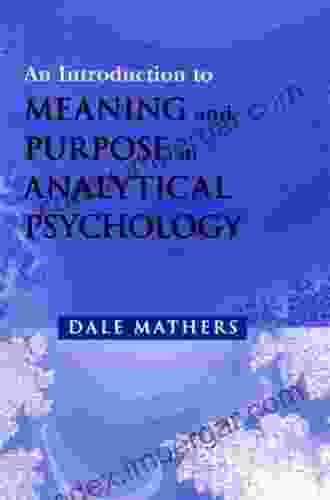
 Gary Cox
Gary CoxUnlocking Meaning and Purpose in Life: An Exploration of...
In an increasingly...

 Eric Hayes
Eric HayesMemoirs of the Early Pioneer Settlers of Ohio Illustrated
A Window into the Lives of Courageous...
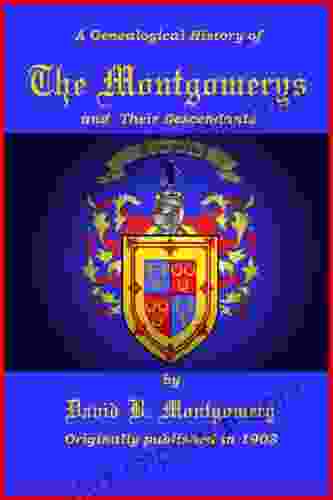
 J.R.R. Tolkien
J.R.R. TolkienThe Montgomerys and Their Descendants: A Saga of Courage,...
Prepare to be...
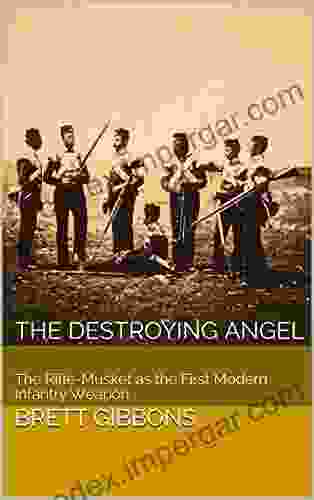
 Avery Simmons
Avery SimmonsThe Rifle Musket: The Dawn of Modern Infantry Warfare
: The rifle musket, a revolutionary...

 Jesse Bell
Jesse BellUnlock the Power of Excel with VBA and Macros: A...
Microsoft Excel is a powerful spreadsheet...
4.3 out of 5
| Language | : | English |
| File size | : | 2008 KB |
| Text-to-Speech | : | Enabled |
| Screen Reader | : | Supported |
| Enhanced typesetting | : | Enabled |
| Word Wise | : | Enabled |
| Print length | : | 184 pages |
| Lending | : | Enabled |


